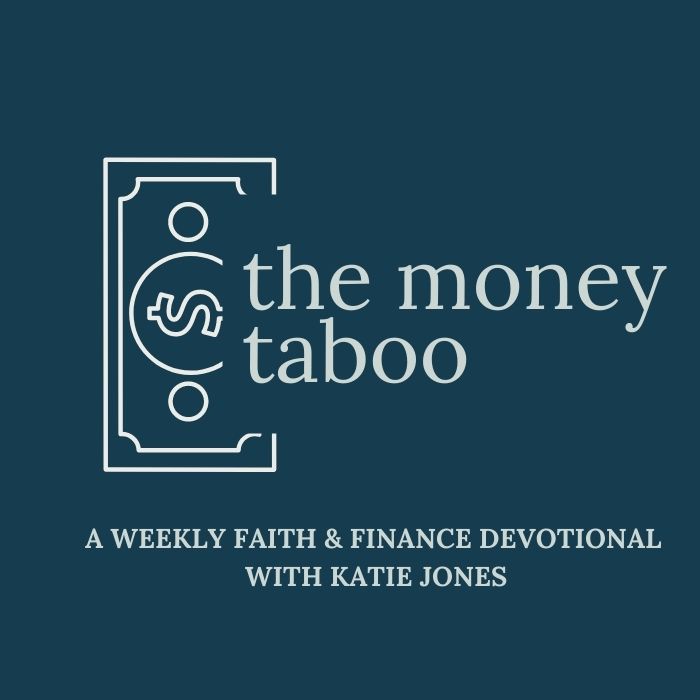Should Christians Track Their Net Worth? | 3 Reasons Why Christians Should Track Their Net Worth
In the personal finance world, it seems as though everything revolves around this one number… your net worth. The message that comes across through books, podcasts, blogs, and videos is that your net worth is the number that will truly tell you how well you are doing in life.
As believers, we know that the ultimate measure of how well we are doing in life is our relationship with Christ. If we are intentionally pursuing a deeper relationship with him, we are doing pretty great.
Does this mean that we, as Christians should ignore these other measures? Should Christians track their net worth? Or does tracking our net worth lead us to putting our security in something fleeting? In this article, we will discuss these questions, and explore why Christians should track their net worth.

What is Net Worth?
Net Worth is a great way to track whether you are going forward financially or backwards.
For example, there are several months in a year where the numbers on our budget say that we are overspending from our paycheck, and if I only looked at that number it would look like we were doing a really poor job of managing our money.
However, when I take a look at our overall net worth it has continuously grown month over month. Even though we have overspent from our budgeted income, our net worth has grown due to the way we actually ended up spending that money. I know that we are moving forward.
How to Calculate Your Net Worth
Figuring out your net worth is fairly simple. It is simply taking all of your assets and subtracting your liabilities (debts).
I personally recommend only factoring in your assets that are liquid cash (savings and checking accounts) as well as your investments (401(k), IRA, brokerage accounts, real estate investments).
You could also add in the value of your primary residence as well as your personal belongings (car, furniture, jewelry, etc) however, the reality is that you probably won’t end up selling any of those things any time soon in order to be able to use that cash for other purchases. So I typically don’t recommend adding them, but the choice is up to you.
Your liabilities are any kind of debt that you still owe. Debts should be pretty simple to figure out, but here is a quick list of debts you might have; student loans, mortgage, credit cards, medical debt, personal loans, tax debt, auto loans, etc.
Assets – Liabilities = Net Worth
Should Christians Track Their Net Worth?
My answer to this question is, yes, but very carefully… Right off the bat, I want to make sure that you understand that I am not saying that you need to very carefully follow your net worth to measure your value or to compare yourself to others.
I really appreciate the way that Craig says it in his article on the Bible Money Matters Blog…
“Net worth could be said in the following ways: the sum of your value, your entire significance, your complete meaning. We fool ourselves if we think our worth, net worth, can be calculated with a pen, paper, or calculator. We prepare ourselves for a lifetime of disappointment if we think our worth is determined by what we own.”
Craig
Your net worth does not define your value. The Bible gives many warnings against loving our money. It can lead to all kinds of evils! (1 Timothy 6:10) But this doesn’t mean we should forget about our money altogether, that would simply be a mistake. In fact, the Bible puts up a strong case for us to budget, as well as to pay off our debt.
God is the one who provided us with the money we have in the first place, and for a very specific purpose. One very crucial biblical truth about money is that we are called to be excellent with our money, this is called stewardship. The term I like to use with my coaching clients is “money manager.”
1 Corinthians 9:24-25 says we are supposed to run the race as if to get the prize! This is how we need to approach our personal finances.
God has entrusted you with a specific amount to start with and it is your job to oversee this money. Bob Lotich in his brand new book, Simple Money Rich Life, suggests that we shouldn’t think about our wealth as our net worth because it suggests that our worth comes from how much money we have accumulated.
Rather, he suggests that we think about our wealth as our assets under management (AUM).
Thinking about our money as AUM can help you and I take the focus off of always trying to accumulate more and more and more… as many personal finance experts suggest. This allows us to view our wealth as a tool to be used for kingdom-building purposes! It gives us a lot more freedom to use our money in a way that honors God.
I believe this is what God truly wants from us when it comes to our money. He wants us to be able to participate in his mission to radically transform the world and we can do that immensely when we have the financial resources to reach even farther!

3 Reasons Why Christians Should Track Their Net Worth
1. You have a responsibility to track your money
Did you know that we have a Biblical responsibility to keep track of our finances?
Proverbs 27:23 says that we should “Know well the condition of your flocks, and give attention to your herds,”
This isn’t just advice for farmers. It’s an instruction about handling money. We know this because way back then, starting all the way in Genesis, livestock was a form of wealth.
Genesis 13:2: “Abram had become very wealthy in livestock and in silver and gold.”
If your boss, neighbor, or family member said “hey hold onto my $10,000 for me, I’ll be back for it.” You would have a responsibility to make sure it doesn’t magically turn into a new wardrobe or car…
This is the message we are taught from the Parable of the Talents. The master is going on a journey and asks his servants to watch over his wealth. God has entrusted you with the wealth you hold just as the master entrusted his wealth with his servants.
2. It allows you to focus on kingdom building activities
Net worth isn’t just a number that you take in order to figure out the temperature of your finances. It is a number that should be tracked over time. Think about your net worth as your AUM (assets under management) and couple that with the lesson from the Parable of the Talents.
The best thing to do with this money you were entrusted with is to invest it. Invest it so it can grow, invest it in Kingdom building activities, invest it in others, and invest it in your own growth.
What is your unique calling? How can you pour into that?
God wants us to keep track of our wealth. Not so we can prove how great we are, but because we need to be aware of what we are responsible for and figure out how we can wisely use the money for things that are bigger ourselves.
3. It is a starting point to your financial testimony
Okay so maybe you are considering all of the debt you currently have and you are dreading learning your actual net worth because you know it probably isn’t great. I believe you are in a great spot to do a financial check-in and face the facts of where you are really at.
Imagine what kind of testimony you will have when you can reflect back on where you were years ago, and be able to point to how God has directed you to be able to redeem your finances.
“A master gardener doesn’t abandon his trees when they are struggling. Instead, he gives them extra time and attention until they are healthy again. Mastering our money requires the same of us. When a financial storm comes, we don’t bury our heads in the sand but instead prayerfully do everything in our strength to weather it well.”
Bob Lotich, Simple Money Rich Life
How to Track Your Net Worth
I recommend “taking the temperature of your finances” at least once if not two times per year. Tracking your net worth can be done on a piece of paper, but I recommend doing it from a spreadsheet that can automatically add everything up for you.
Setting up a spreadsheet using Google Sheets or Excel is very simple. However, if you’d like some already made sheets, you can grab my Google Sheets net worth tracking template here.

Some Next Steps to Improve Your Net Worth
- Track Your Net Worth – the first thing is to start tracking your net worth. You can’t improve what you don’t measure.
- Budget – get more details about where your money is going month to month by setting up a budget and tracking your expenses.
- Pray for Your Finances – learn to pray over your finances and invite God in to help you take the right steps with your money.
- Educate Yourself – keep consuming financial education. Here are some faith and money books I recommend to get you started.
- Seek Help from a Mentor – mentorship is a fantastic way to level up your money management journey! Learn more about faith-based money coaching here.
Ready to transform your financial journey through faith-based guidance? Book an empowering call with Katie Jones, a Certified Christian Financial Counselor, today and pave the way for abundance and blessings in your life!
Find Out If Faith-Based Money Coaching is Right For You
You May Also Like:
Bible Verses About Excellence
Where to Keep Your Money
Are You Ready to Start Investing?
Bad Money Habits You Need to Break Today



